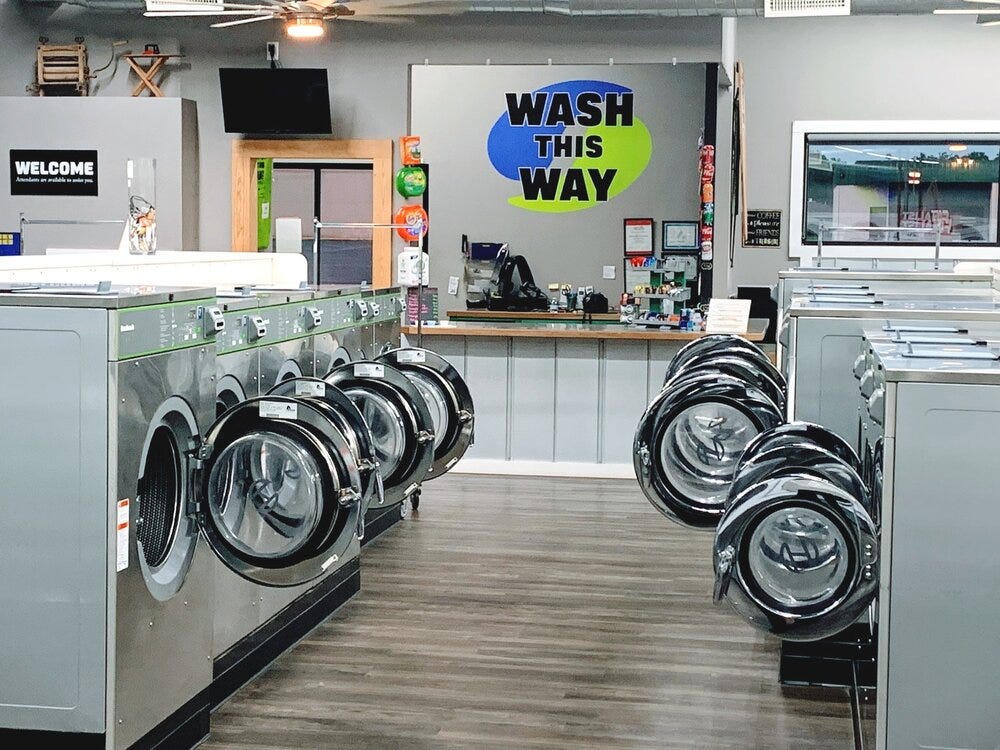Concluding thoughts on Prayer as a Political Problem
The preferential option for the poor installment
Thank you all for your comments, questions, and testimonials about the warmth of airport chapels in response to my back and forth with Brandon McGinley about “Prayer as a Political Problem.”
I’ll be announcing our next reading and guest on October 1st, and, in the meantime, I had a final question for Brandon, and two links to recommend.
Leah: Danielou is very firm that the poor suffer most when religion isn't part of public life. Do you have a change you'd most like to make for the specific benefit of the poor? (We spent a while talking about airport chapels, which are definitely not accessible to most people).
Brandon: We shouldn't be surprised that the consequences of irreligion fall hardest on the poor. Religion, after all, is intrinsically related to justice; in fact it's a constituent element of justice—justice to God. As Scott Hahn and I argue in a soon-to-be-released book on this topic, justice is cruciform: The vertical (religion as justice to God) supports the horizontal (social justice). When we ignore or contemn the former, we remove the essential basis for the latter.
When it comes to something we can do right now to relieve this particular burden on the poor, the first thing to come to mind is not so much a policy change but a change in public attitudes and social priorities: the rediscovery of leisure as an essential human good. We talk about leisure and rest as rewards for success, as luxuries that must be earned, but that gets it completely backward. Understanding the provision of leisure and rest as duties our society owes to all, especially the poor, in virtue of our dignity is an essential first step toward reordering our society away from corporate-economic time and toward liturgical-supernatural time.
Eve Tushnet has a meditation on Susan Crawford Sullivan’s Living Faith: Everyday Religion and Mothers in Poverty, an ethnographic study.
Poor women, including those who don’t go to church (more on this in a moment), prayed at work often. Their prayers have a note of desperation: “Help me get through the day.” They pray to cope with customers and bosses who don’t treat them as human beings. They frequently feel overwhelmed and need strength from the Lord to make it through. Where richer Christians incorporated their faith into their work by considering their jobs “vocations,” these women consider motherhood their vocation; their jobs are sites of testing and suffering.
And also service. A few mothers noted that their jobs as housecleaners, nurses, factory workers etc. allowed them to give others gifts–of prayer, care, a needed item, “a touch of love.” And like richer Christians, they do evangelize at work: One woman describes her conversion, in which a fellow keypunch operator witnessed to her and prayed with her. They had to keep working their machines the whole time so their managers wouldn’t notice that a soul was coming to Christ! As Sullivan notes, workplaces are often more important in her interviewees’ “lived religion” than churches.
We spent a fair amount of this month discussing creating space for prayer, but one other resource I want to share is a church project to simply create space for existing with dignity. Richard Beck proposed that churches should open laundromats.
Laundromats are local, neighborhood third spaces, places where relationships can be formed. Plus, laundromats meet a need in a way a Carmel Macchiato cannot.
To say nothing of the blessing it would be to hand out free quarters or provide an attendant so that errands could be run while clothing was being cleaned or dried. Perfect ministry opportunities for church members wanting to serve and get to know neighbors.
His suggestion was taken up by other members of his church and became Wash this Way.

Ex libris,
Leah




Fellow TinyBook Club peoples-
Here's a post on Leah's old blog, UY, that touches on third spaces / that laundromat idea:
https://www.patheos.com/blogs/unequallyyoked/2015/02/offering-hospitality-to-introverts-athletes-and-other-strange-types.html
(I loved that post at the time! It really made me think. And I have gone back to it >= 3 times since I first read it.)
I see now that a large portion the UY post is quoting the Richard Beck post linked above, so a second on that one!
How fun - people who read the original post can now know the follow-up story - that his church created a clean (GORGEOUS) and welcoming space, competently managed.
And I really love some of the thoughts here.
*hopes to comment more later* (possibly including descriptions of the discouragement of apartment complexes' basement laundry rooms I've experienced.)
This made me reflect on my time living and traveling in Catholic countries (I'm thinking of South America here mostly, but Europe to a lesser extent) and how easy it was to come across accessible places for prayer. I'm not just thinking of cities densely packed with Catholic churches—which, yes, but not everybody lives in cities!—but of the countless roadside shrines. This happens in the US too, usually to memorialize car crash victims. But what if they were much more than that? I'm thinking of the "Little Free Library" movement that has popped up and proliferated DIY neighborhood book exchanges. What if more of us set up Little Free Shrines, basically? A Marian grotto in every Catholic homeowner's front yard!!!! A chapel for every rest area on major American highways!!!